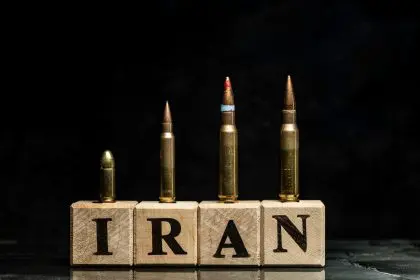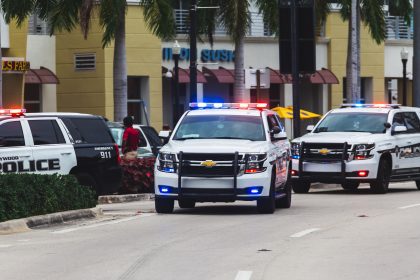Behind the constitutional guarantee of trial by jury lies a shadowy reality of American criminal justice: the vast majority of federal criminal cases never reach a courtroom. Instead, they end in plea bargains – agreements where defendants plead guilty, often to lesser charges, in exchange for reduced sentences. While this system expedites case processing and conserves judicial resources, mounting evidence reveals a disturbing pattern of racial disparities that disproportionately harm Black men throughout the criminal justice process.
The plea bargaining system operates largely outside public view, conducted in prosecutors’ offices rather than open courtrooms. This opacity creates fertile ground for unconscious bias and systemic discrimination to flourish unchecked. For many Black men, particularly those from economically disadvantaged backgrounds, the consequences extend far beyond incarceration, creating lifetime barriers to employment, housing, education, and civic participation.
Coercive pressures and impossible choices
Black defendants frequently face insurmountable pressure to accept plea deals regardless of actual guilt. Prosecutors routinely practice charge stacking – filing numerous serious charges for a single incident, sometimes carrying mandatory minimum sentences measured in decades. When confronted with the possibility of spending most of their lives in prison, even innocent defendants may rationally accept a plea bargain carrying a shorter sentence.
Pre-trial detention compounds these pressures. Unable to afford bail, many Black defendants remain incarcerated while awaiting trial, losing jobs, housing, and sometimes custody of their children. This economic devastation creates additional incentive to accept plea deals simply to return home, even when the consequence is a permanent criminal record.
Public defenders, while dedicated, often struggle with overwhelming caseloads. This systemic under-resourcing of defense services means many Black defendants receive minimal consultation before making life-altering decisions. Many report spending mere minutes with their attorney before deciding whether to accept a plea, with little explanation of collateral consequences or potential defenses.
Documented disparities at every stage
Racial disparities persist throughout the plea bargaining process. Black male defendants frequently receive longer sentences than similarly situated white male defendants for equivalent crimes, even when controlling for factors like criminal history and offense severity.
Evidence shows that prosecutors offer white defendants better plea deals than Black defendants for equivalent crimes. White defendants more frequently receive offers that include charge reductions, resulting in both shorter sentences and fewer collateral consequences like employment restrictions or loss of voting rights.
Pre-trial risk assessment tools, ostensibly designed to increase objectivity, often reinforce rather than mitigate these disparities. These systems frequently incorporate factors strongly correlated with race, such as neighborhood characteristics and family arrest history, perpetuating historical patterns of over-policing in Black communities.
Lifetime consequences beyond incarceration
Even successful plea bargains that avoid incarceration can devastate Black men’s economic and social prospects. Criminal records create formidable barriers to employment, with employers more likely to call back white applicants with criminal records than equally qualified Black applicants with identical records. This compounds existing racial employment disparities.
Housing insecurity follows similar patterns, with many landlords excluding applicants with criminal histories. Given that Black men are more likely to acquire criminal records through plea bargains, this practice disproportionately affects Black communities, contributing to residential segregation and concentrated poverty.
Educational opportunities narrow dramatically after criminal convictions. Federal law restricts financial aid eligibility for certain drug convictions, and many colleges require criminal history disclosure during the application process. This systematically limits social mobility precisely when higher education has become essential for economic advancement.
Profound implications for democratic participation
Perhaps most fundamentally, plea bargains contribute to disenfranchisement of Black communities. In many states, felony convictions result in temporary or permanent loss of voting rights. Millions of Americans remain disenfranchised due to felony convictions, with Black Americans disenfranchised at rates significantly higher than non-Black Americans.
This systematic removal of political power creates a troubling democratic deficit, leaving the communities most affected by criminal justice policies with diminished ability to influence those policies through electoral participation. When combined with practices like prison gerrymandering – counting incarcerated individuals as residents of their prison locations rather than home communities – these disparities further dilute Black political representation.
Reform efforts and path forward
The recognition of these disparities has sparked reform initiatives across the country. Some jurisdictions have implemented practices like blind charging, where prosecutors make initial charging decisions without demographic information that could trigger bias. Others have enhanced pre-trial services to reduce the coercive pressure of pre-trial detention, allowing defendants to make more deliberative decisions about plea offers.
Progressive prosecutors in cities like Philadelphia, San Francisco, and Boston have implemented policies aimed at reducing racial disparities, including declining to prosecute certain low-level offenses and requiring supervisory approval for charge stacking. These reforms face institutional resistance but represent important experiments in creating more equitable outcomes.
Most fundamentally, addressing disparities in plea bargaining requires greater transparency and accountability throughout the process. Collecting and publishing data on plea offers by race can expose patterns of disparity that remain hidden in individual cases. Expanding resources for public defense ensures that all defendants receive adequate counsel before making life-altering decisions.
The plea bargaining system’s disparate impact on Black men represents one of the most significant civil rights challenges of our era. By understanding and addressing these systemic inequities, we can work toward a justice system that truly provides equal protection under law.

















